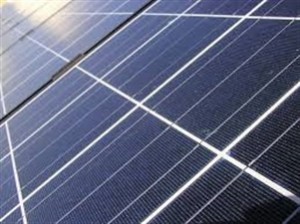One year into having our rooftop solar panels installed here in Portland Oregon, we’re living off the sun. That’s to say, we producing slightly more electricity than we’re using. Yippee! (The wonks among us call this achieving net zero.)
What’s the secret to living off the sun?  The secret is to use electricity sparingly. Solar energy is created in real time, and therefore supplies a slow, modest trickle of energy. Coal, in contrast, took millions of years to form in the earth, and yet is our culture’s main source of electrical energy. That’s unfortunate, because burning coal and other fossil fuels is what’s driving climate change, also known as global warming.
The secret is to use electricity sparingly. Solar energy is created in real time, and therefore supplies a slow, modest trickle of energy. Coal, in contrast, took millions of years to form in the earth, and yet is our culture’s main source of electrical energy. That’s unfortunate, because burning coal and other fossil fuels is what’s driving climate change, also known as global warming.
How much electricity do we use while living off the sun’s energy? We only use 4,3000 kilowatts/year, while the average U.S. household uses 11,280 kilowatts/year. So we’re using about 38% of the national average. That was true back when we lived in a small home built in 1940, and has remained true since we moved three years ago to our current home of 2250 square feet that was built (to good, modern energy code) in 2010. See my post on slashing your electricity bill.
Does my home literally have no electricity bill? We still get a bill, but we only pay the basic service charge that keeps us connected to the grid. That’s because our solar panels are feeding into the grid a little more electricity than we’re using. This set-up is called net metering.
Are we depriving ourselves by using 62% less electricity than the average household? I think we live a wonderful life. And I’ve never heard anybody term me a martyr. The main ways our lifestyle looks different from most U.S. households would probably be these:
- We have no flat-screen TV. Flat-screens, especially large and high-resolution ones, use a lot of energy. We actually have no TV at all. I think plenty of people watch some great things on TV, and I’m not telling you to get rid of yours. I do think, though, that having a TV would move me backward in my battle with sitting disease.
- We hang our laundry up to dry, rather than using our clothes dryer. I admit I’m not crazy about the aesthetics of our spare room being adorned on most days with underwear, dishtowels, socks and shirts hanging from the compact indoor clothesline we bought cheap from Target. But my husband Thor is passionate about the hanging up of clothes to conserve electricity, and he’s willing to do it. I remind myself this is a very positive hobby, as husbands’ hobbies go.
- We have no air conditioner. When it gets hot we use fans, and shade the house with blinds, and slow ourselves down. Heating and cooling is where the bulk of everyone’s energy use lies. We also wash all laundry loads in cold water.
How much did our solar panels cost? They cost $5,950 when we had them installed a year ago, and we’re getting that whole investment back in Oregon tax credits over four years. Unfortunately, those tax credits have been reduced since then.
What’s our payback period? Payback period refers to how long it takes for an investment to pay for itself. Our payback period on our solar investment is unusually short, much less than four years, due to Oregon’s good tax credits in 2012. But let’s say no tax credits are available as you’re considering solar panels. That means it’s only your reduced electricity bills that will pay you back for your solar investment. If you’re paying $1,200 annually for electricity, which many households do, and if you combine serious energy conservation with getting solar panels, your payback period for your solar investment could possibly be as little as five or six years.
What happens after the payback period is over? That’s when it really gets interesting, because then the solar owner’s/solar producer’s electricity is free, except for the basic monthly service charge. Twenty years worth of my household’s pre-solar electricity bills equals $9,278 — which equals the electricity bills we won’t be paying, since our solar panels are producing that electricity. Where else can you be practically guaranteed that much return on an investment?
Are we living off the grid? No, our electricity is hooked into our city’s electrical grid, like most urban folks with solar panels. So, I should clarify that we do still receive a monthly electricity bill, and we pay a basic service charge Being part of the grid means that the energy we produce with our solar panels goes into the general power supply, and the energy we use comes from that same general power supply. Off-the-gridders are usually in rural areas. I would love to hear from anyone living with off-the-grid solar in the comments section.
Were our solar panels made in China? No, we made a point of buying solar panels made in Oregon. We paid a bit extra for this. We consider it money well spent if we can help a fellow Oregonian have a job.
We can’t all get solar panels. So, what’s the main takeaway here? If you’re a renter, or condo owner, or your roof is old or is in permanent shade, solar panels probably aren’t an option for you. But energy conservation will still both save you money, and make you more resilient to climate change and extreme weather events. Whatever your average monthly bill is, set a goal of reducing it by a third. See this site for more tips. Treat electricity as if it’s precious, like gold, because someday in the future we may all need to be living off the sun and the slow, real-time energy that it produces.
Over to you. What is your favorite way to conserve electricity? Or, what do you find hardest about doing that?


 Subscribe
Subscribe
Al, I enjoyed your article. It’s great that you don’t use dryer or have an AC despite having a large house.
I don’t have a computer or stereo.. And use my I phone for Internet & music. I watch a little tv at night and tend to use small lamps rather than bright overhead lights. We cal all conserve electricity with more effort .
Mick, having been in your apartment, I know for a fact that you use energy conservatively. Thanks for commenting!
Unfortunately, it seems a lot of people prefer to own something (solar panels) rather than simply (using) not buying electricity they don’t really need. We did solar on our house because the credits at the time made it almost no cost to receive free electricity, most folks can’t get that same deal. Almost everyone in the US can just take the easy money by using less.
I’ve been reflecting that most people spend about $50,000 on electricity in their lifetimes (that’s figuring $1,000/year over 50 years . . . many people spend more). Probably half of that could be saved, without great effort, and the lowered energy use would benefit the earth and the future, as well as the individuals saving thousands of dollars.
Hi Alison! I really enjoyed this post! I also think it would be great to share with a site that I moderate, the Home Energy Saver Community, a collaboration between Lawrence Berkeley National Lab and Home Energy Magazine. Specifically, I would love permission to repost it with your info and byline in our “How do you save energy?” forum discussion area (http://homeenergysaver.ning.com/forum/categories/how-do-you-save-energy/listForCategory).
Either way, thank you for a great post!
Macie, Sounds great. You have my permission to repost it with my byline — Alison Wiley at Diamond-Cut life — and so does everyone else, under Creative Commons practices.